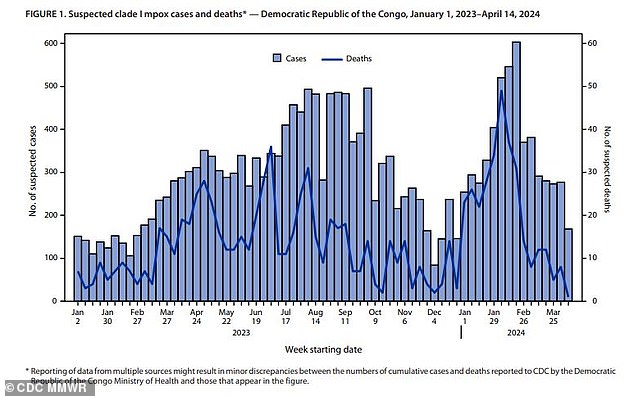Health officials warn that mpox cases have reached an all-time high in some areas of Africa, and they fear it “could spread to other countries,” including the United States.
In a recently released report, CDC officials reported that the Democratic Republic of the Congo (DRC) has experienced an increase in mpox (previously called Monkeypox) from 2023 to 2024.
Although the disease, which causes rashes and skin lesions, is endemic in the Democratic Republic of the Congo, American experts fear that the rise of a more severe form of mpox called clade I could lead to a repeat of its rapid spread in other countries such as the United States. United States and the United Kingdom. .
The team wrote that this increase “underscores the importance of urgent, coordinated global action to support the DRC’s efforts to contain the virus.”
CDC officials said the latest increase in mpox cases in the Democratic Republic of the Congo is the “largest increase in mpox cases ever recorded.” It includes 19,919 cases and 975 deaths.
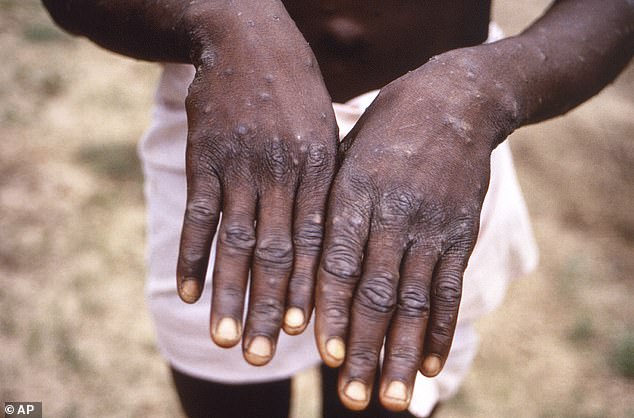
The telltale signs of mpox are rashes and skin lesions. Muscle pain, swollen lymph nodes, headaches, and chills are also common.
The report comes after officials found a mutant strain of mpox with “pandemic potential” in the small town of Kamituga.
Additionally, news of the disease, which often infects gay and bisexual men, comes as the United States and other countries around the world prepare to celebrate Pride month in June.
Mpox is divided into two categories: clade I and clade II.
Clade I, which authorities say has never been detected outside endemic regions of Africa, is the most severe form of the disease.
Clade I outbreaks have killed up to 10 percent of infected people, according to the CDC. It is endemic to Central Africa.
The less severe form is known as clade II and has spread to the United States and the United Kingdom, among other developed countries. The CDC estimates that 99.9 percent of patients survive. This form is endemic to West Africa.
The CDC analyzed data from the Democratic Republic of the Congo’s national infectious disease surveillance system.
It found that 19,919 cases of clade I Mpox were reported between January 1, 2023 and April 14, 2024, along with 975 deaths.
CDC officials called it “the largest increase in Mpox cases ever recorded” in the Democratic Republic of the Congo.
Approximately 67 percent of infections occurred in patients under 15 years of age, and these patients accounted for 78 percent of deaths.
Children ages one to five accounted for 28 percent of infections.
The cases came from 25 of the DRC’s 26 provinces and, for the first time, affected the capital city of Kinshasa. However, they were mainly concentrated in the western province of Ecuador.
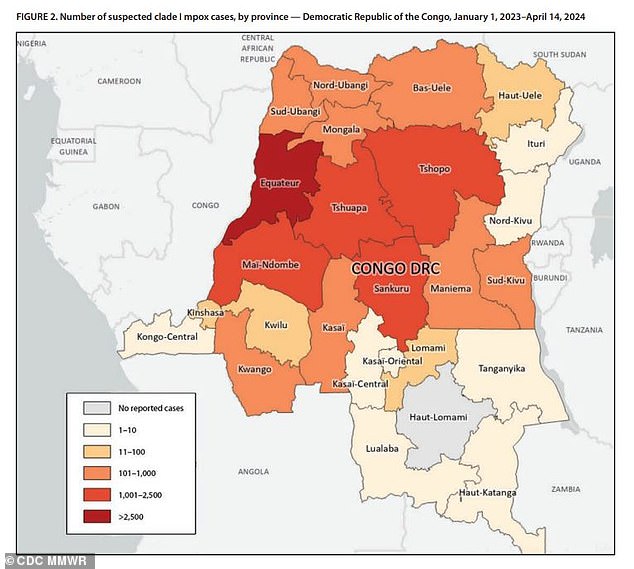
The CDC reported that while nearly all provinces reported mpox cases, most were concentrated in the western region of Ecuador.
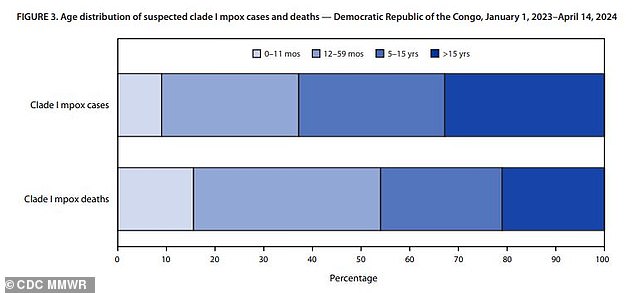
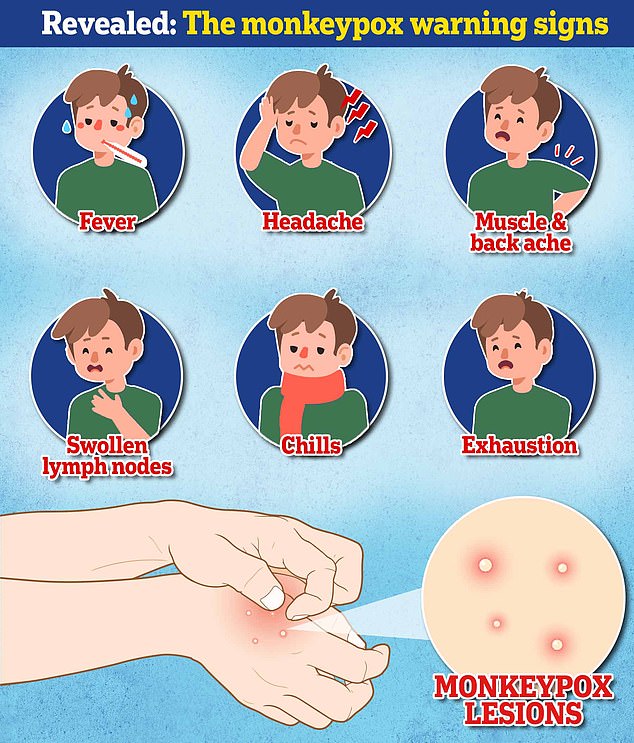
CDC researchers noted that the cases could be due to contact with multiple types of infected animals. “Transmissible spread to close contacts within households is likely to contribute substantially to case counts,” the experts wrote.
They also suggested that demographic variations between provinces, such as sexual preference, could give rise to “a complex epimiological picture.”
The World Health Organization states that mpox is transmitted through skin-to-skin contact with an infected person, contact with bodily fluids, intimate sexual contact, or contact with infected animals.
MPox sparked alarm among US health officials in 2022, when clade II began spreading rapidly among gay and bisexual men, reaching a peak of 450 cases per day in August of that year.
But infections appeared to have declined amid heightened awareness of the disease and a rushed vaccination programme.
In total, 32,063 cases were diagnosed with mox and 58 people died from the disease.
As of January 2024, the CDC no longer updates its Mpox data, leaving detection in the hands of local and state authorities.
The CDC said it is working to expand laboratory testing for mpox throughout the Democratic Republic of the Congo and conducting research on the JYNNEOS vaccine, which is approved in the United States for mpox and smallpox.
The agency warned that while clade I has not been seen in the U.S., those most vulnerable to infection, such as gay men, may need to take extra precautions.
“To date, no cases of clade I mpox have been reported in the United States or in any country where the virus is not endemic,” the researchers said.
“However, given the documented sexual transmission of clade I MPXV in the Democratic Republic of the Congo, people who engage in certain sexual behaviors (e.g., MSM with multiple sexual partners and sex workers) could be at increased risk if clade I mpox is introduced into the United States.”
The agency issued a health alert in December 2023 urging doctors to be on the lookout for mpox in people with signs and symptoms who had recently been to the Democratic Republic of the Congo.
Additionally, it issued a Level 2 Travel Health Advisory, which suggests avoiding contact with wild animals, staying away from sick people, not touching contaminated objects such as bedding, and getting vaccinated if you have certain risk factors.
These include being a gay or bisexual man, having sexual contact with a person at risk, or having someone who may have mpox.


